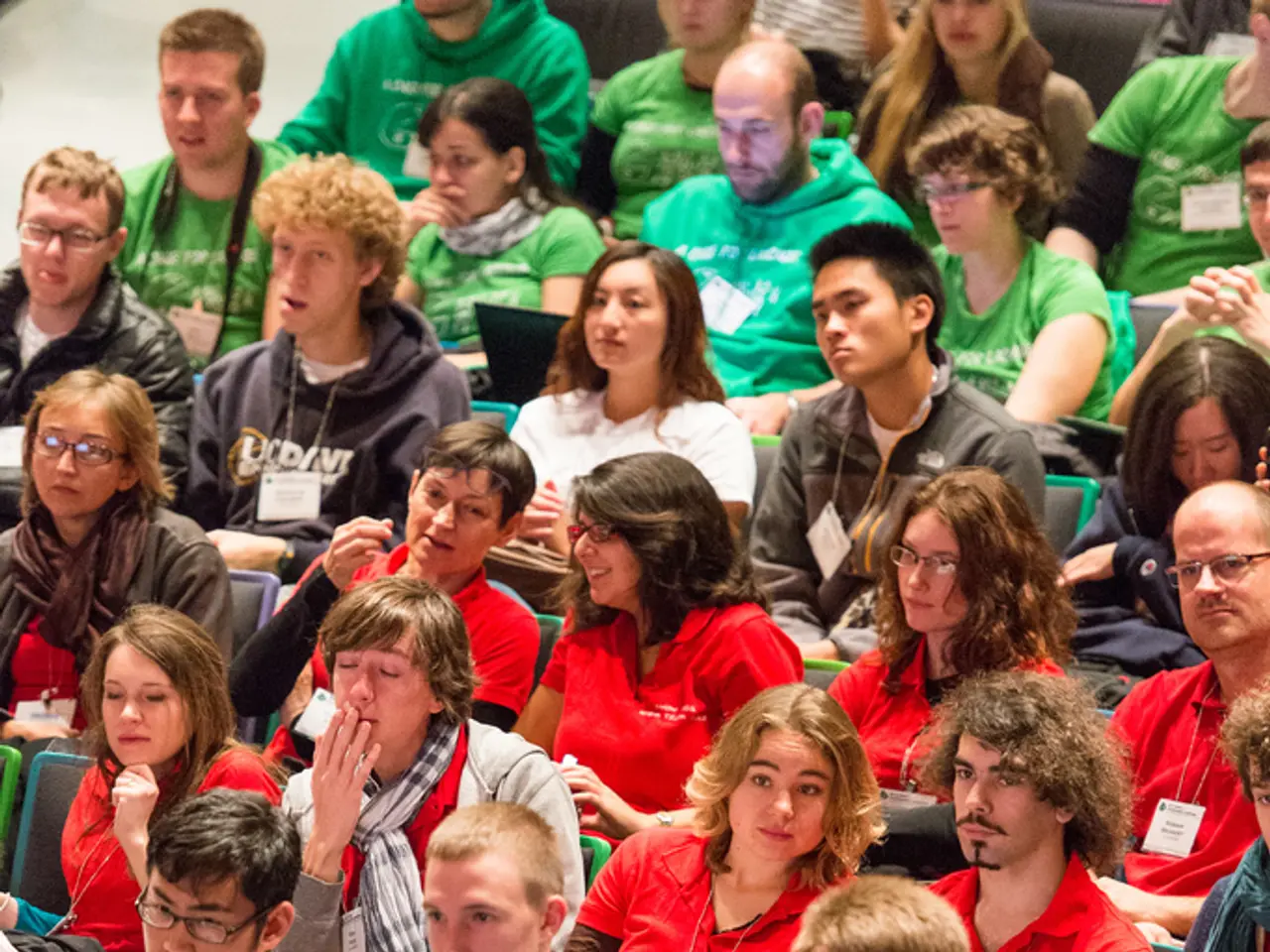restriction of digital intake: confine digital inflow
In the era of constant notifications and overwhelming information, two ancient leaders, Marcus Aurelius and Napoleon Bonaparte, offer valuable insights on how to manage the influx of data and maintain focus.
Marcus Aurelius, the renowned Roman Emperor, approached the challenge of managing information by practising deep reflection and meditation. In his famous book, 'Meditations', he emphasized the importance of understanding the interconnectedness of all things and maintaining a clear grasp of what was within his control and what was not. By constantly reminding himself of the nature of the universe and his part within it, Marcus Aurelius was able to maintain perspective and calm amid chaos, focusing on his own duties rather than being overwhelmed by external events.
To further manage the stress of leadership, Marcus Aurelius emphasized simplicity, frugality, and ethical behaviour. He advised focusing on what truly brings value rather than chasing excess or distraction, cultivating inner peace and self-discipline to withstand fleeting external pressures and material desires.
Napoleon Bonaparte, on the other hand, was known for his exceptional organizational talent and strategic filtering of information. He employed aides and structured channels to prioritize essential military and political information, focusing decisively on objectives critical to his campaigns and empire-building. Like Marcus Aurelius, Napoleon needed clarity about what really mattered in order to act effectively under pressure.
For modern individuals, these ancient leaders' approaches offer practical lessons. Prioritising reflection and meditation can help prevent being overwhelmed by today’s constant information influx. Focusing on what one can control, simplifying, and practising moderation can help avoid distractions from excessive desires or information overflow. Maintaining perspective on interconnectedness can reduce anxiety over isolated events.
By adopting Marcus Aurelius’s meditative and value-centered approach along with Napoleon’s strategic filtering and prioritization, modern individuals can more effectively manage information overload and direct their focus toward what truly matters. Napoleon, for instance, did not mind being behind on his mail or missing out on minor events if it meant preserving his capacity for clear thinking.
In the face of the constant flood of information in modern times, including notifications, emails, texts, alerts, news updates, and group chats, it is crucial to intentionally choose what gets one's attention. This can be achieved by putting up barriers and reducing noise, such as turning off notifications, unsubscribing from newsletters, leaving energy-draining group chats, setting up email filters, and ignoring the breaking news cycle.
Limiting inputs helps reclaim control over one's mind, creating space for deep thought, deliberate work, and meaningful learning. As Epictetus, another ancient philosopher, suggested, to improve, one should be content to appear clueless or stupid in extraneous matters. By focusing on what truly matters, modern individuals can navigate the information age with greater clarity and effectiveness.
[1] Marcus Aurelius, *Meditations* [3] Seneca, *On the Shortness of Life*
Technology can serve as a tool to aid personal growth by providing access to education-and-self-development resources, but it's important to manage and limit the distractions it may cause, especially when it leads to an influx of information that hinders lifestyle balance. Adopting Marcus Aurelius's meditative and value-centered approach, along with Napoleon's strategic filtering and prioritization, can help navigate technology effectively, fostering deeper learning and promoting personal growth.




